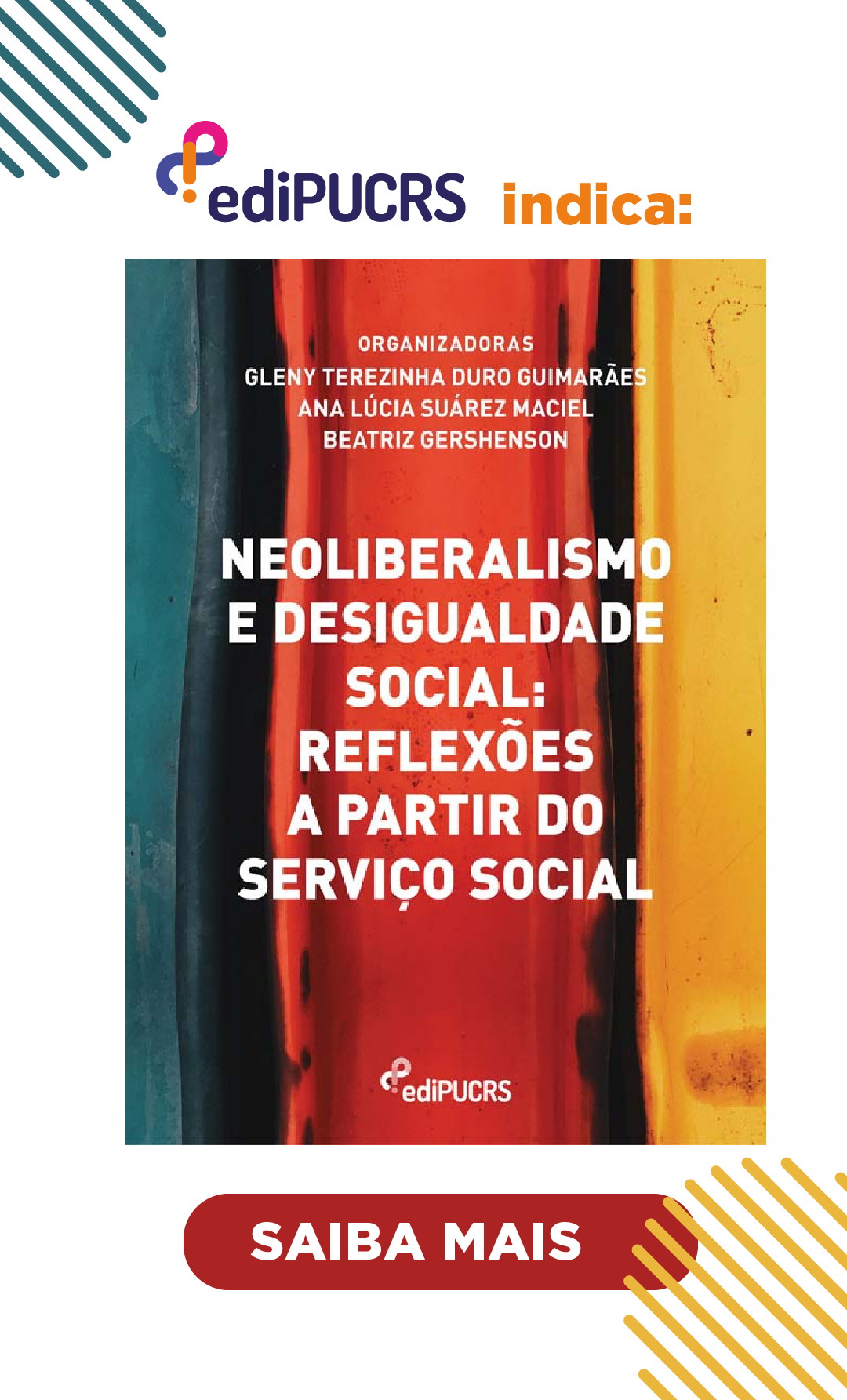Brazil: the institutional changes in the recent period and the new government
DOI:
https://doi.org/10.15448/1677-9509.2019.2.36785Keywords:
Temer Government. Bolsonaro Government. Labor reform. Constitutional Amendment 95. Social politics.Abstract
This text discusses institutional changes implemented in the recent period in Brazil. If they are not reversed in a future government, they will have, on the one hand, redefined the place of the state in the economy and society, resulting, among other consequences, in the shrinking of public policies in general, and especially of social policies; on the other hand, they will have substantially altered the country’s labor market, expanding the presence of the already important and structural segment of informal workers. They consist of the Constitutional Amendment 95 (EC 95) and the set of articles and provisions of the Consolidation of Labor Laws (CLT) that were amended by the labor reform. In the first section, aspects concerning the conditions inherited by the new government are analyzed; in the second one, we discuss the Constitutional Amendment 95; in the following section, we go over the labor reform and the labor market, both inherited from Michel Temer’s government. In section four, some of the ongoing measures of the new government are presented into detail.
Downloads
References
ABRÃO, Camila. Tiro ao alvo: mais de 30 cabeças derrubadas no governo Bolsonaro. Gazeta do Povo [online], Curitiba, 24 jun. 2019. Disponível em: https://www.gazetadopovo.com.br/republica/bolsonaro-ministrosfuncionarios-alto-escalaodemitidos/. Acesso em: 13 set. 2019.
APÓS REFORMA ações trabalhistas caem 34% em 2018. Veja [online], São Paulo, 24 jan. 2019. Disponível em: https://veja.abril.com.br/economia/apos-reforma-trabalhista-acoes-trabalhistas-caem-34-em-2018. Acesso em: 16 set. 2019.
BCB. Nota à imprensa do mercado aberto. Notas econômico-financeiras . [S. l.]: Banco Central do Brasil, 2019. Disponível em: https://www.bcb.gov.br/acessoinformacao/legado?url=https:%2F%2Fwww.bcb.gov.
br%2Fhtms%2Finfecon%2Fdemab%2Fma201907%2Findex.asp. Acesso em: 14 jun. 2019.
BOVA, Elva; KINDA, Tidiane; MUTHOORA, Priscilla; TOSCANI, Frederik. Fiscal Rules at a Glance Toscani.. [S. l.]: International Monetary Fund, 2015. Disponível em: https://www.imf.org/external/datamapper/FiscalRules/Fiscal%20Rules%20at%20a%20Glance%20-%20Background%20Paper.pdf. Acesso em: 13 nov. 2016.
BRASIL. Letter of Intent/Memorandum of Economic Policies. International Monetary Fund. [S. l.: s. n.]: 1998. Disponível em: https://www.imf.org/external/np/loi/111398.htm. Acesso em: 16 set. 2019.
BRASIL. Projeto de Lei nº 5.483, de 04 de outubro de 2001. Brasília, DF: Presidência da República, 2011. Disponível em: https://www.camara.leg.br/proposicoesWeb/fichadetramitacao?idProposicao=33868. Acesso em: 14 set. 2019.
BRASIL. Portal da Legislação. Brasília, DF: Presidência da República, 2019a. Disponível em: http://www4.planalto.gov.br/legislacao/portal-legis/legislacao-1/decretos1/decretos-1. Acesso em: 12 set. 2019.
BRASIL. Lei nº 13.707, de 14 de agosto de 2018. Estima a receita e fixa a despesa da União para o exercício financeiro de 2019. Brasília, DF: Presidência da República, 2018. Disponível em: http://www.planalto.gov.br/ccivil_03/_ato2019-2022/2019/lei/L13808.htm. Acesso em: 11 set. 2019. https://doi.org/10.22478/ufpb.1981-0695.2018v13n2.43266
BRASIL. Decreto 9.741, de 29 de março de 2019. Brasília, DF: Presidência da República, 2019b. Disponível em: http://www.planalto.gov.br/ccivil_03/_ato2019-2022/2019/decreto/D9741.htm. Accesso em: 11 set. 2019.
CHESNAIS, François. As raízes da crise econômica mundial. Olho da história. [S. l.: s. n.]: 2012. Disponível em: http://oolhodahistoria.org/n18/artigos/chesnais.pdf. Acesso em: 12 out. 2018. https://doi.org/10.12957/rep.2013.7556
CHESNAIS, François. O capital portador de juros: acumulação, internacionalização, efeitos econômicos e políticos. In: CHESNAIS, F. (org.). A finança mundializada, raízes sociais e políticas, configuração, consequências. São Paulo: Boitempo, 2005.
DARDOT, Pierre; LAVAL, Christian. A nova razão do mundo. São Paulo: Boitempo, 2016.
DEPARTAMENTO INTERSINDICAL DE ESTATÍSTICAS E ESTUDOS SOCIOECONÔMICOS (DIEESE ). A Reforma Trabalhista e os impactos para as relações de trabalho no Brasil. Nota Técnica, nº 178, maio de 2017. São Paulo: Dieese, 2017.
GOBETTI, Sérgio Wulff; SCHETTINI, Bernardo Patta. Dívida líquida e dívida bruta: uma abordagem integrada para analisar a trajetória e o custo do endividamento brasileiro. Brasília: IPEA, 2010.
MARQUES, Rosa Maria; ANDRADE, Patrick Rodrigues. Crisis política y escalada del capital en Brasil. Realidad Económica, Buenos Aires, n. 302, 2016. Disponível em: http://www.iade.org.ar/articulos/crisis-politica-y-escalada-del-capital-en-brasil. Acesso em: 12 out. 2018.
MARQUES, Rosa Maria; ANDRADE, Patrick Rodrigues. Democracia burguesa e dominância do capital portador de juros: apontamentos sobre processos em curso no Brasil. O Olho da Hístória, Salvador, n. 24, dez. 2016. Disponível em: file:///H:/20%20de%20maio%20de%202018/RosaRetorno/Textos/Redem2016/Nota%20-%20webconferencia/rosamaria-1Patrick.pdf. Acesso em: 12 out. 2018.
MARQUES, Rosa Maria; UGINO, Camila Kimie. O Brasil é chamado à ordem. Argumentum, Vitória, v. 9, n. 3, set./dez. 2017.
MARX, Karl. O Capital. Crítica da Economia Política. 2. ed. São Paulo: Nova Cultural, 1985.
MUDANÇA na CLT não vai preservar empregos, diz deputado. Consultor Jurídico [online], [s. l.], 09 jan. 2002. Disponível em: https://www.conjur.com.br/2002-jan-09/governo_reduzir_direitos_. Acesso em: 12 set. 2019.
NAKATANI, Paulo; OLIVEIRA, Fabricio Augusto. Política econômica brasileira de. Collor a Lula: 1990-2007. In: MARQUES, Rosa Maria; FERREIRA, Mariana Ribeiro Jansen. O Brasil sob a nova ordem. São Paulo: Saraiva, 2010.
NÓS temos é que desconstruir muita coisa, diz Bolsonaro durante jantar. Valor Econômico, [s. l.], mar. 2019. Disponível em: https://valor.globo.com/brasil/noticia/2019/03/18/nos-temos-e-que-desconstruir-muita-coisa-diz-bolsonaro-durantejantar.ghtml. Acesso em: 14 jun. 2019. https://doi.org/10.24109/2176-6673.emaberto.30i98.3172
OFFE, Claus. Capitalismo desorganizado: transformações contemporâneas do trabalho e da política. 2. ed. São Paulo: Editora Brasiliense, 1994.
PLIHON, Dominique. As grandes empresas fragilizadas pela finança. In: CHESNAIS, François (org.). A finança mundializada, raízes sociais e políticas, configuração, consequências. São Paulo: Boitempo, 2005.
SEMINÁRIO A Nova Economia Liberal. [S. l.: s. n.], 2019. 1 vídeo (244 min). Publicado por Fundação Getúlio Vargas. Disponível em: https://eventosepge.fgv.br/pt/video/24745. Acesso em: 14 set. 2019.
Downloads
Published
How to Cite
Issue
Section
License

This work is licensed under a Creative Commons Attribution 4.0 International License.
Copyright
The submission of originals to Textos & Contextos (Porto Alegre) implies the transfer by the authors of the right for publication. Authors retain copyright and grant the journal right of first publication. If the authors wish to include the same data into another publication, they must cite Textos & Contextos (Porto Alegre) as the site of original publication.
Creative Commons License
Except where otherwise specified, material published in this journal is licensed under a Creative Commons Attribution 4.0 International license, which allows unrestricted use, distribution and reproduction in any medium, provided the original publication is correctly cited.





